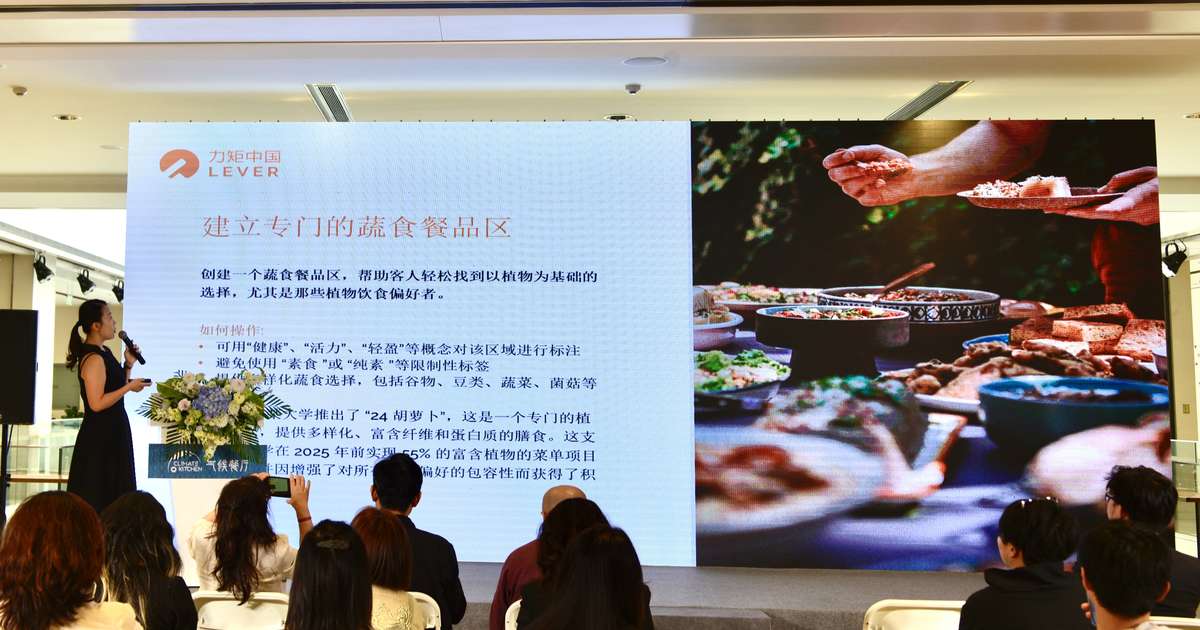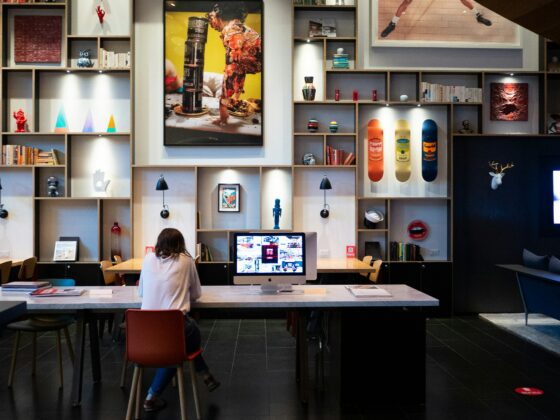
Shanghai — A new hospitality industry sustainability scorecard released by Shanghai-based food consultancy Lever China highlights eleven leading hotel groups in China receiving the highest possible rating for their policy commitments on plant-based foods.
The China Hospitality Industry Plant-Based Foods Scorecard evaluated hospitality groups’ corporate policies on increasing plant-based meal offerings and promoting plant-based foods to guests. The 11 hospitality groups achieving the prestigious A+ rating are Accor Hotels, Langham Hospitality, IHG Hotels & Resorts Greater China, Marriott Greater China, The Ascott Limited South China, Dossen Group, Orange Hotels under Huazhu Group, Artyzen Hospitality Group Greater Bay Area, Ahn Lan Resorts & Hotels, OCTAVEHotels, and Baiyun Hotel and Yee Hotel under White Swan Hotel Group, covering over 4,800 hotel properties.
Accor and Langham have pledged to make 50% of their menus plant-based by 2030 at all locations globally. IHG and Marriott are leading the charge in Greater China, with commitments to transition 30% of their menus to plant-based options by the end of 2025. Regional leaders are also stepping up: Ascott will shift 30% of its menus in South China to plant-based options by 2028, and Artyzen will feature at least 30% plant-based dishes in Macau and Hengqin by 2026.
Domestic brands are also making bold strides, with Huazhu Group’s Orange Hotels and OCTAVE Hotels aiming to make an industry-leading 70% of their menus plant-based by the end of 2025. Meanwhile, Dossen Group, Ahn Lan Resorts & Hotels, and Baiyun Hotel and Yee Hotel under White Swan Hotel Group, have committed to 30% plant-based offerings by 2025-2026.
We are thrilled to see that in the first edition of the China Hospitality Industry Plant-Based Foods Scorecard, eleven companies have received the highest score of A+ for pledging to make at least 30% of their menus plant-based. Plant-forward menu strategies are quickly becoming a hallmark of industry leadership in the hospitality sector, delivering measurable benefits to both business operations and broader societal goals of public health and environmental sustainability. Cecilia Zhao, Director of Sustainability Programs at Lever China, a consultancy that focuses on food sustainability upgrading
The scorecard is generating significant industry traction following its presentation at Shanghai Climate Week. At the April 25 Climate Kitchen Forum, Lever China’s keynote sparked enthusiastic engagement from hospitality executives and sustainability leaders. Numerous attendees committed to adopting the framework beyond hotels—exploring applications across corporate dining, campus food services, and organic farming operations, signaling a broader movement toward plant-forward food systems.
A recent consumer survey found that 88% of Chinese consumers believe businesses in the hospitality and retail sectors are responsible for managing the health and sustainability of their food supply chain. Additionally, 77% of consumers reported they are more likely to patronize establishments with specific policy goals on increasing the use of plant-based foods.
This shift toward plant-based foods in the hospitality sector aligns with government initiatives aimed at mitigating climate change and improving public health. China’s Ministry of Health has issued dietary guidelines encouraging the nation’s 1.4 billion people to increase their intake of plant-based foods, while seven central government ministries and commissions have jointly identified the promotion of green and healthy food as a key area for enhancing sustainable consumption.
The Scorecard represents the first comprehensive assessment of leaders in China’s hospitality industry setting plant-based food policy commitments, establishing a benchmark for future progress in this evolving sector.
About Lever China
Lever China is a Shanghai-based consultancy that focuses on early-stage investment and consultancy services in the new protein industry, working to advance plant-based foods and upgraded animal proteins.








